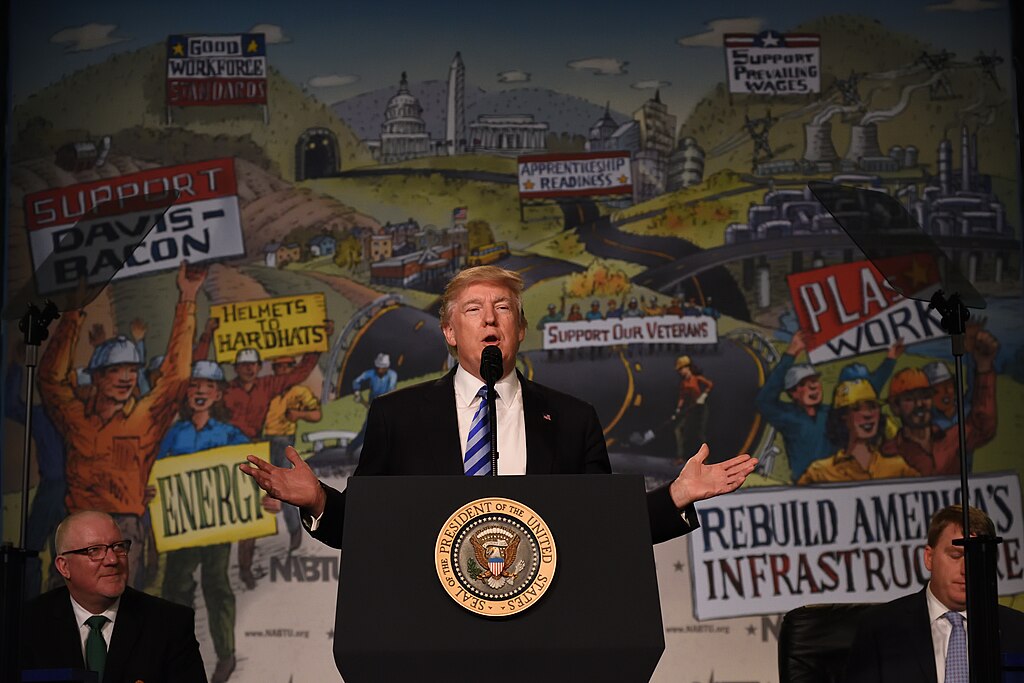President-elect Donald Trump has articulated a comprehensive approach to cryptocurrency mining regulations set to take effect in 2025. His strategy emphasizes bolstering the domestic crypto industry while implementing measures to ensure financial stability and security.
Encouraging Domestic Cryptocurrency Mining
A cornerstone of Trump's policy is to position the United States as a global leader in Bitcoin mining. He aims to achieve this by offering incentives to domestic mining operations, including tax breaks and access to affordable energy resources. This initiative seeks to increase the nation's share of global Bitcoin production, thereby enhancing economic growth and technological innovation.
Establishing a Strategic Bitcoin Reserve
In a move to integrate digital assets into national financial strategies, Trump plans to create a strategic Bitcoin reserve. This reserve would involve the U.S. government accumulating a significant amount of Bitcoin over a specified period. The objective is to leverage these assets to strengthen the national economy and hedge against potential financial uncertainties.
Implementing Regulatory Oversight
While promoting the growth of the cryptocurrency sector, the administration intends to enforce regulations to address concerns related to fraud, national security, and financial stability. This includes imposing stricter Know Your Customer (KYC) and Anti-Money Laundering (AML) requirements on cryptocurrency exchanges and mandating federal registration for digital wallet providers. The goal is to create a secure environment for investors and prevent illicit activities within the crypto space.
Public Reactions
The proposed policies have elicited varied responses from the public:
-
@CryptoEnthusiast: "Encouraging domestic mining is a step forward, but regulatory clarity is crucial for sustainable growth."
-
@FinancialAnalyst: "A strategic Bitcoin reserve could stabilize the economy, but market volatility remains a concern."
-
@TechInvestor: "Incentives for mining operations may boost innovation, yet environmental impacts must be addressed."
-
@PolicyCritic: "Stricter regulations are necessary to prevent fraud, but they should not stifle industry advancement."
-
@EconomistView: "Integrating digital assets into national reserves is innovative, but requires careful risk assessment."
-
@LegalAdvisor: "Enhanced KYC and AML measures are vital for security, but implementation must balance privacy rights."
Conclusion
President-elect Trump's stance on cryptocurrency mining regulations reflects a dual approach: fostering industry growth through supportive policies and ensuring financial integrity via regulatory oversight. As these measures unfold, their impact on the U.S. crypto landscape will be closely monitored by stakeholders across the financial and technological sectors.



 Middle East Conflict Escalates After Khamenei’s Death as U.S., Israel and Iran Exchange Strikes
Middle East Conflict Escalates After Khamenei’s Death as U.S., Israel and Iran Exchange Strikes  HHS Adds New Members to Vaccine Advisory Panel Amid Legal and Market Uncertainty
HHS Adds New Members to Vaccine Advisory Panel Amid Legal and Market Uncertainty  Macron Urges Emergency UN Security Council Meeting as US-Israel Strikes on Iran Escalate Middle East Tensions
Macron Urges Emergency UN Security Council Meeting as US-Israel Strikes on Iran Escalate Middle East Tensions  Does international law still matter? The strike on the girls’ school in Iran shows why we need it
Does international law still matter? The strike on the girls’ school in Iran shows why we need it  EU Urges Maximum Restraint in Iran Conflict Amid Fears of Regional Escalation and Oil Supply Disruption
EU Urges Maximum Restraint in Iran Conflict Amid Fears of Regional Escalation and Oil Supply Disruption  Iran Supreme Leader Ayatollah Ali Khamenei Killed in Israeli, U.S. Strikes: Reuters
Iran Supreme Leader Ayatollah Ali Khamenei Killed in Israeli, U.S. Strikes: Reuters  UK Accepts U.S. Request to Use British Bases for Defensive Strikes on Iranian Missiles
UK Accepts U.S. Request to Use British Bases for Defensive Strikes on Iranian Missiles  Trump Announces U.S. Strikes on Iran Navy as Conflict Escalates
Trump Announces U.S. Strikes on Iran Navy as Conflict Escalates  Trump Says U.S. Attacks on Iran Will Continue, Warns of More American Casualties
Trump Says U.S. Attacks on Iran Will Continue, Warns of More American Casualties  Netanyahu Suggests Iran’s Supreme Leader Khamenei May Have Been Killed in Israeli-U.S. Strikes
Netanyahu Suggests Iran’s Supreme Leader Khamenei May Have Been Killed in Israeli-U.S. Strikes  U.S.-Israel Strike on Iran Escalates Middle East Conflict, Trump Claims Khamenei Killed
U.S.-Israel Strike on Iran Escalates Middle East Conflict, Trump Claims Khamenei Killed  U.S. Lawmakers Question Trump’s Iran Strategy After Joint U.S.-Israeli Strikes
U.S. Lawmakers Question Trump’s Iran Strategy After Joint U.S.-Israeli Strikes  Russia Signals Openness to U.S. Security Guarantees for Ukraine at Geneva Peace Talks
Russia Signals Openness to U.S. Security Guarantees for Ukraine at Geneva Peace Talks  AI is already creeping into election campaigns. NZ’s rules aren’t ready
AI is already creeping into election campaigns. NZ’s rules aren’t ready  Trump Launches Operation Epic Fury: U.S. Strikes on Iran Mark High-Risk Shift in Middle East
Trump Launches Operation Epic Fury: U.S. Strikes on Iran Mark High-Risk Shift in Middle East  Argentina Tax Reform 2026: President Javier Milei Pushes Lower Taxes and Structural Changes
Argentina Tax Reform 2026: President Javier Milei Pushes Lower Taxes and Structural Changes  Marco Rubio to Brief Congress After U.S.-Israeli Strikes on Iran
Marco Rubio to Brief Congress After U.S.-Israeli Strikes on Iran 
































